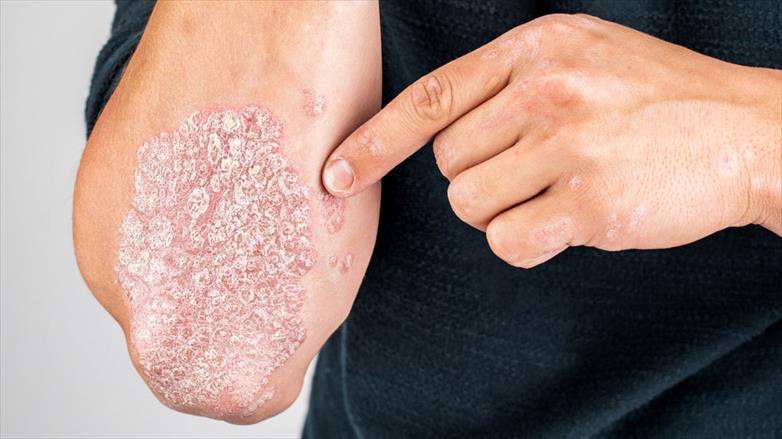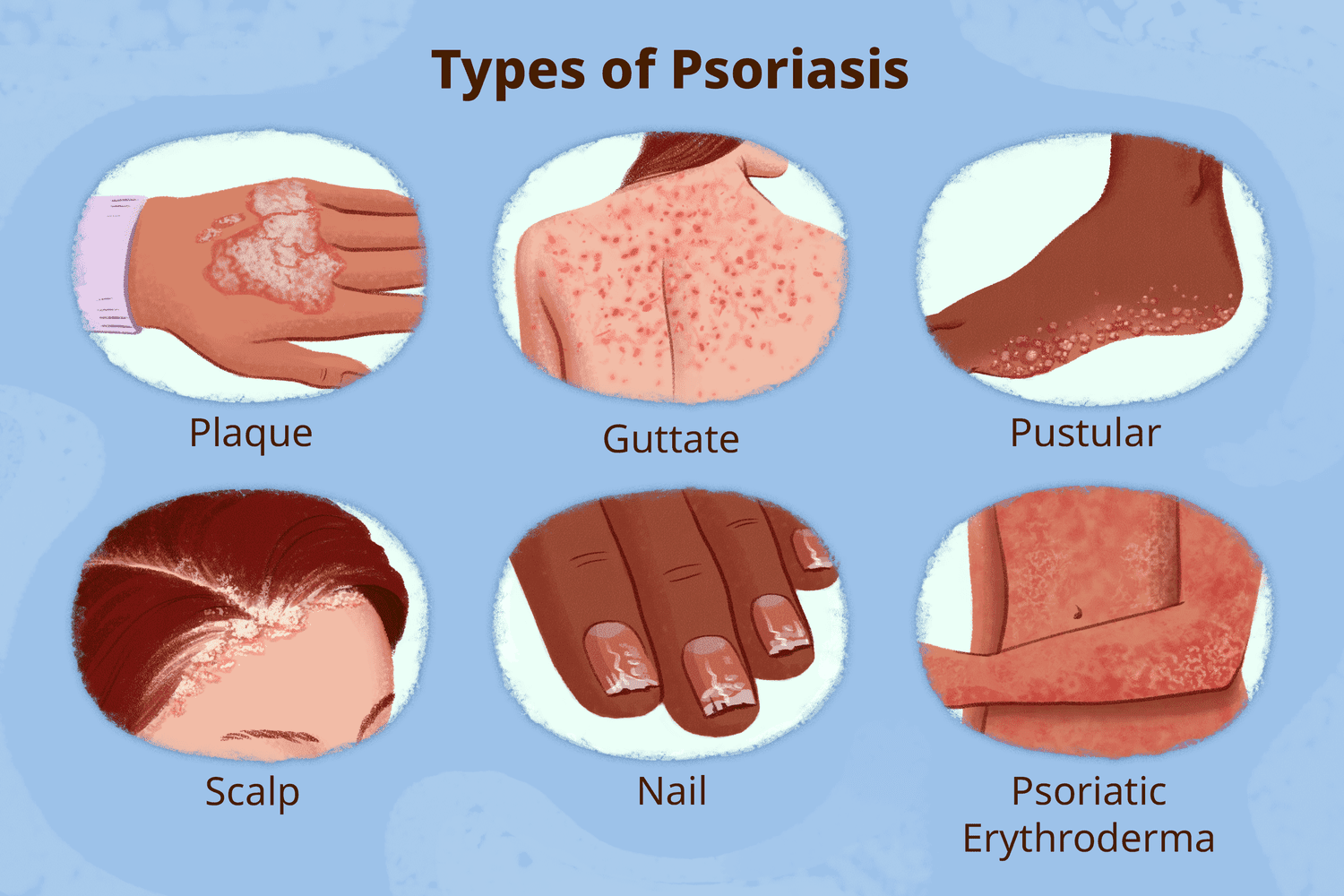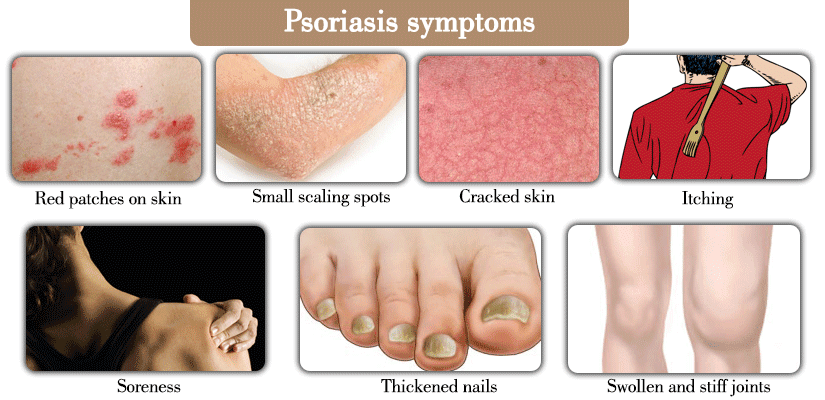Title: Understanding Psoriasis: Signs, Symptoms, Causes, Risk Factors, Diagnosis, Prevention, Diet, Lifestyle, and Homoeopathic Treatment
Introduction:
Psoriasis is a chronic autoimmune condition that affects the skin, leading to the development of red, scaly patches. It can cause physical discomfort and impact one's overall well-being. Understanding the signs, symptoms, causes, risk factors, diagnosis methods, prevention strategies, diet and lifestyle considerations, and the potential role of homoeopathic treatment is essential for effectively managing psoriasis. In this blog post, we will explore the key aspects of psoriasis and its holistic approach to treatment.
Signs and Symptoms of Psoriasis:
1. Red patches of skin: Raised, inflamed patches covered with thick, silvery scales.
2. Dryness and itching: The affected skin may feel dry, itchy, and may crack or bleed.
3. Thickened or pitted nails: Nails may become discolored, thickened, or develop small pits.
4. Joint pain and swelling: Some individuals with psoriasis may also experience joint pain and swelling (psoriatic arthritis).
Common Causes of Psoriasis:
1. Autoimmune dysfunction: Psoriasis occurs when the immune system mistakenly attacks healthy skin cells, causing rapid skin cell turnover.
2. Genetic predisposition: Family history plays a role, as certain genes are associated with an increased risk of developing psoriasis.
3. Environmental factors: Triggers such as infections, stress, trauma to the skin, and certain medications can exacerbate or trigger psoriasis flare-ups.
Risk Factors for Psoriasis:
1. Family history: Having a close relative with psoriasis increases the likelihood of developing the condition.
2. Age: Psoriasis can develop at any age, but it commonly appears between the ages of 15 and 35.
3. Stress: High levels of stress can contribute to the onset or worsening of psoriasis symptoms.
4. Obesity: Excess weight and obesity are associated with a higher risk of developing psoriasis.
Diagnosis of Psoriasis:
1. Physical examination: A healthcare professional examines the skin and nails for characteristic signs of psoriasis.
2. Medical history: Discussing personal and family medical history to assess risk factors and potential triggers.
3. Biopsy: In some cases, a small skin sample may be taken for laboratory analysis to confirm the diagnosis.
Prevention Strategies for Psoriasis:
While psoriasis cannot be completely prevented, the following strategies may help manage the condition:
1. Avoid triggers: Identify and minimize exposure to triggers such as stress, skin injuries, infections, and certain medications.
2. Moisturize: Regularly moisturize the skin to prevent dryness and soothe itchiness.
3. Protect your skin: Use sunscreen, protective clothing, and avoid prolonged exposure to harsh weather conditions.
4. Stress management: Practice stress-reducing techniques such as meditation, exercise, and engaging in hobbies.
Diet and Lifestyle Considerations:
1. Balanced diet: Maintain a healthy, well-rounded diet rich in fruits, vegetables, whole grains, and lean proteins.
2. Omega-3 fatty acids: Incorporate sources like fish, flaxseeds, and walnuts, as they may have anti-inflammatory effects.
3. Alcohol and smoking: Limit or avoid alcohol consumption and quit smoking, as these can worsen psoriasis symptoms.
4. Regular exercise: Engage in physical activity to promote overall well-being and help manage stress.
Homoeopathic Treatment for Psoriasis:
Homoeopathic treatment for psoriasis aims to address the underlying immune dysfunction and manage symptoms. Some commonly used homoeopathic remedies for psoriasis include:
1. Arsenicum album: Indicated for dry, scaly, and itchy psoriatic patches.
2. Sulphur: Recommended for individuals with intense itching and burning sensations.
3. Graphites: Useful for psoriasis with oozing or sticky discharges.
It is important to consult a qualified homoeopathic practitioner for an accurate diagnosis and individualized treatment plan based on your specific symptoms and overall health.
Conclusion:
Psoriasis is a chronic skin condition that requires ongoing management. By understanding the signs, symptoms, causes, risk factors, prevention strategies, diet and lifestyle considerations, and considering homoeopathic treatment as a complementary approach, individuals can effectively manage psoriasis and improve their quality of life. Remember to consult healthcare professionals for an accurate diagnosis and to create a comprehensive treatment plan tailored to your specific needs.




Leave a Message